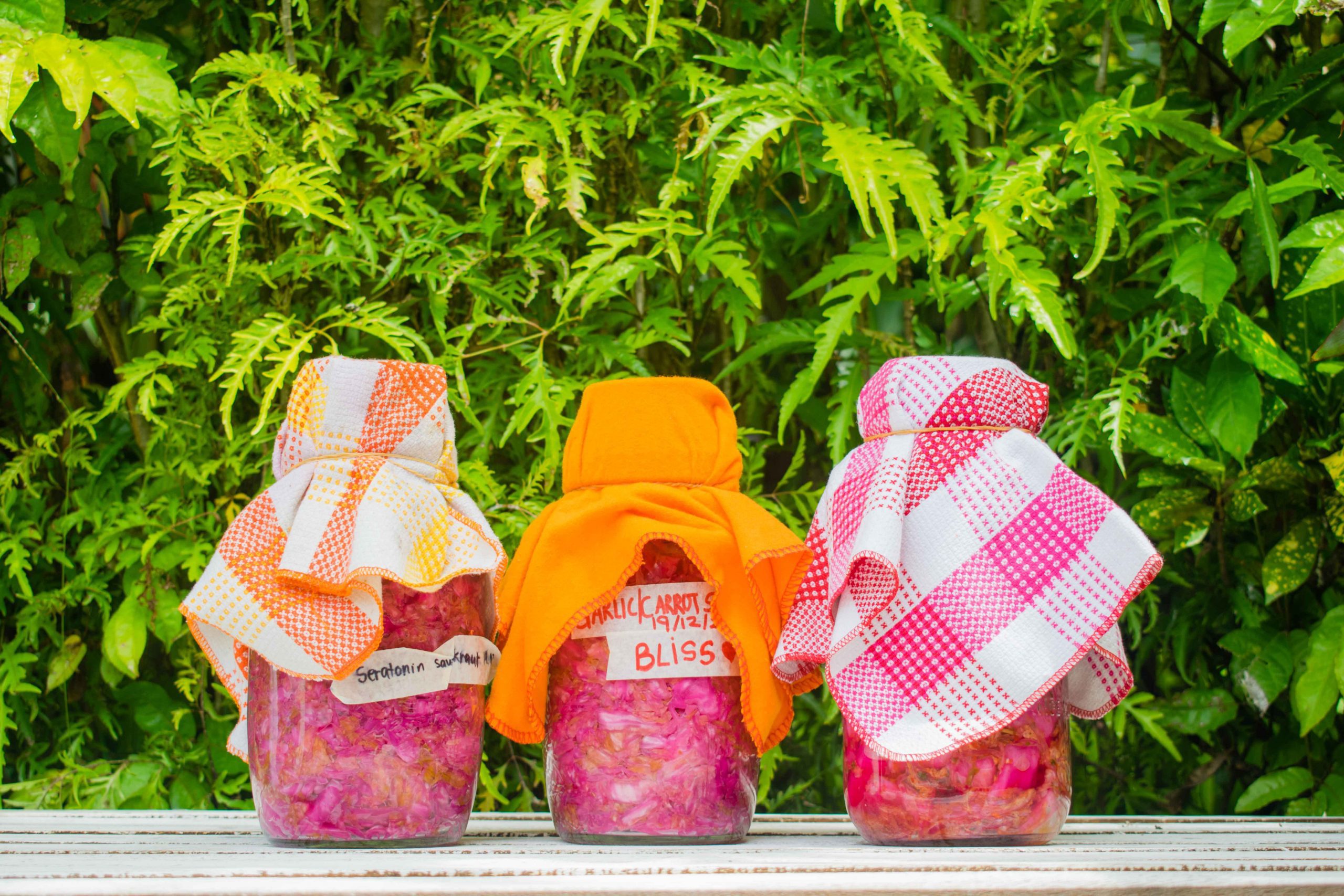
Fermented Foods
What Are Fermented Foods?
Fermented foods are foods that have been through a process of lactofermentation in which natural bacteria feed on the sugar and starch in the food creating lactic acid. This process preserves the food, and creates beneficial enzymes, b-vitamins, Omega-3 fatty acids, and various strains of probiotics.
At The Seeds of Life we offer a range of home made healthy cultures and probiotics ranging from Kefir/Tibicos, Kombucha, Sauerkraut, Kimchi, Coconut yoghurt, we make tonic elixir cocktails using ferments in our tonic bar called ‘Loloh’ and we incorporate them into our recipes on the cafe menu.
Natural fermentation of foods has also been shown to preserve nutrients in food and break the food down to a more digestible form. This, along with the bevy of probiotics created during the fermentation process, could explain the link between consumption of fermented foods and improved digestion.
Cultures around the world have been eating fermented foods for years, from Sauerkraut in Germany to Kimichi in Korea and everywhere in between. Sadly, with the advances in technology and food preparation, these time-honored traditional foods have been largely lost in our society.
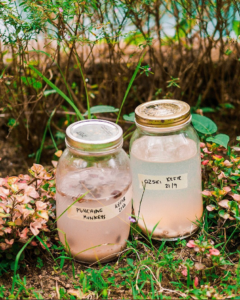
Where Have All the Fermented Foods Gone?
The amount of probiotics and enzymes available in the average diet has declined sharply over the last few decades as pasteurized milk has replaced raw, pasteurized yogurt has replaced homemade, vinegar based pickles and sauerkraut have replaced traditional lacto-fermented versions…the list goes on.
Benefits: The reported beneficial effects of probiotic consumption include improvement of constipation, diarrhea, and intestinal inflammatory conditions such as Crohn’s disease, ulcerative colitis, irritable bowel syndrome, and necrotizing enterocolitis and the prevention of allergic disease in infants, enhance immune system function, improve lactose intolerance, and can prevent infection with pathogenic or disease causing microorganisms & alleviation of peanut allergy in children by co-administering probiotics with a peanut oral immunotherapy.
Why Eat Fermented Foods?
Besides the fact that they taste great and really grow on you, there are several great reasons to start making and eating fermented foods (if you have allergies to histamines, then it’s best to try a little first to see if you will react to any fermented foods) :
1 Probiotics– Eating fermented foods and drinking fermented drinks like Kefir and Kombucha will introduce beneficial bacteria into your digestive system and help the balance of bacteria in your digestive system. Probiotics have also been shown to help slow or reverse some diseases, improve bowel health, aid digestion, and improve immunity!
2 Absorb Food Better– Having the proper balance of gut bacteria and enough digestive enzymes helps you absorb more of the nutrients in the foods you eat. Pair this with your healthy real food diet, and you will absorb many more nutrients from the foods you eat. You won’t need as many supplements and vitamins, and you’ll be absorbing more of the live nutrients in your foods.
3 Budget Friendly– Incorporating healthy foods into your diet can get expensive, but not so with fermented foods. You can make your own whey at home for a couple of dollars, and using that and sea salt, ferment many foods very inexpensively. Drinks like Water Kefir and Kombucha can be made at home also and cost only pennies per serving. Adding these things to your diet can also cut down on the number of supplements you need, helping the budget further.
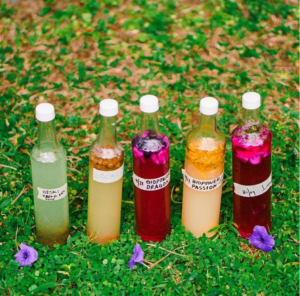
Here’s a recipe for you to try at home.
Kimchi
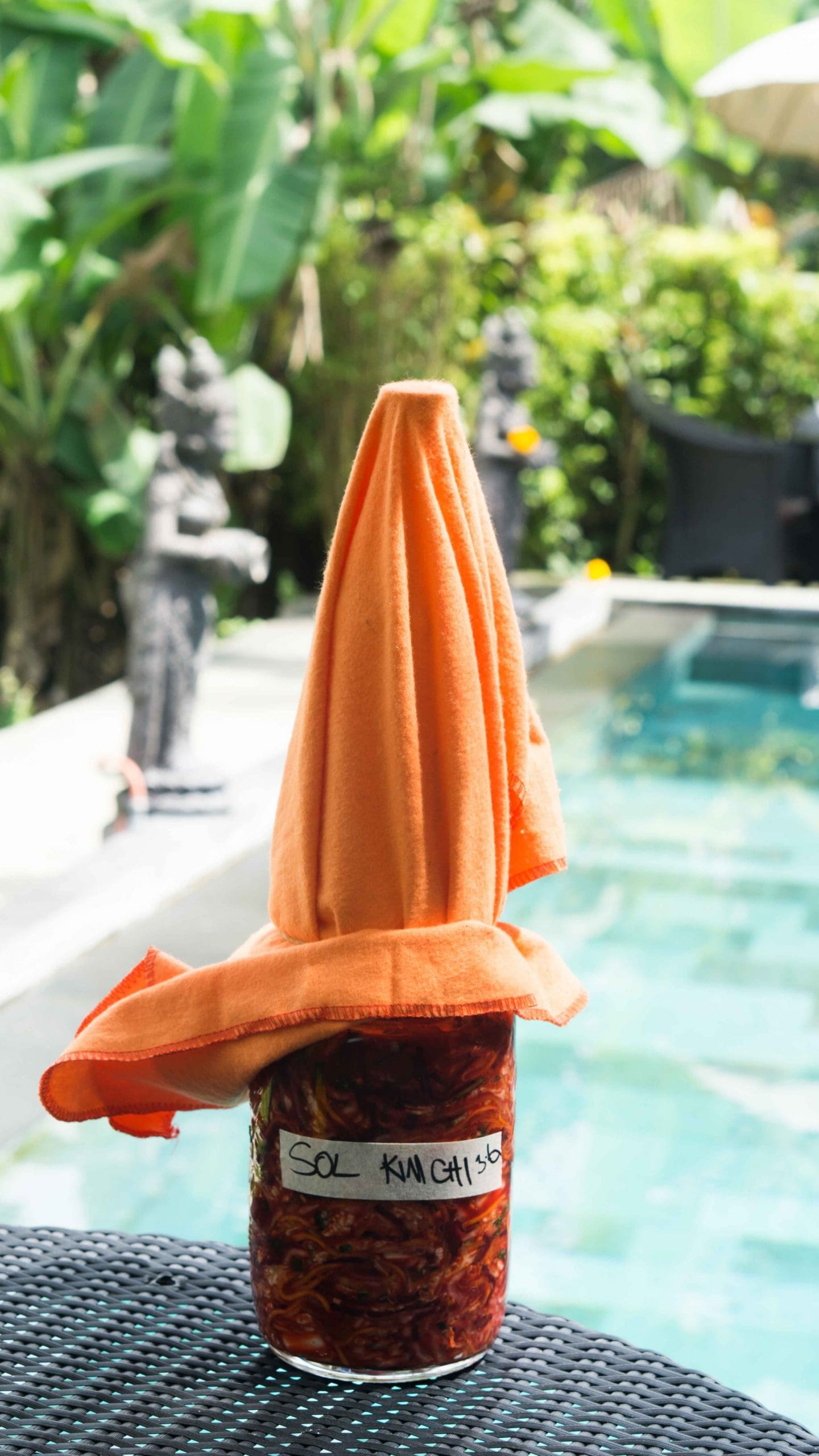
Ceramic crock pot or mason jar, large mixing bowl – 30 minutes
- 1 head Napa/Chinese Cabbage
- Hand full of spring onions
- 1 cup of carrots – medium mandolin blade
- 1 cup of beetroot – medium mandolin blade
- ¼ cup thinly sliced fennel & or daikon
- 2 T grated ginger
- 2 T grated mother root turmeric
- 3 or 4 cloves minced garlic
- Either dried or fresh chili flakes to taste
- 1 T Himalayan salt
- 1 small handful of fresh coriander
- 2 T Mexican spices if your making Mexican flavors
Method:
After peeling off and saving the outer layers of the cabbage & washing all your produces, shred the cabbage, slice the veggies & place in a large mixing bowl. Run the other veggies over the mandolin using the medium blade. After mincing the garlic, grating the ginger and turmeric, add to the bowl with all the other spices except the salt. Incorporate well with your hands, you might want to use gloves as the chili may burn you. I like to add the salt bit-by-bit, massaging well into the cabbage and veggies specifically until the water starts to come out.
A trick here is if you want the fermentation process to happen quickly then use some kefir water or probiotics, however that will only inhibit the natural occurring lactobaccilus probiotics forming from the vegetable culture. Up to you and your timing. Massage into the veggies at this point if you’re using a probiotic.
Then, in your crock pot or glass jar, add the veggies and press down until the water rises over the top. You can add an outer leaf of the cabbage not used to cover the top then add a weight to keep the water above the line of the veggies. This line of water is what preserves the culture in its own juices and creates a beneficial terrain. Fill the jar only to 3⁄4’s full to give room for bubble and toil. Seal your jar for 3 days and watch the magic happen. Veggies will last for a long time in the jar.
Check every day to see if the water levels are above the veggie line so they are well preserved.
Idea: We like to use tinctures or tonic and medicinal herbs in my ferments sometimes. Going for brain tonics like bacopa or brahmi are a great start as is ginkgo biloba. When we are working with cultured foods, we directly stimulate and support brain function offering the opportunity to enhance our well being.
Visceral feelings and gut instincts are literally emotional intuitions transferred up to your brain via the vagus nerve. In previous studies, signals from the vagus nerve traveling from the gut to the brain have been linked to modulating mood and distinctive types of fear and anxiety.
Louis Pasteur was quoted saying, “the bacteria is nothing, the terrain is everything!”


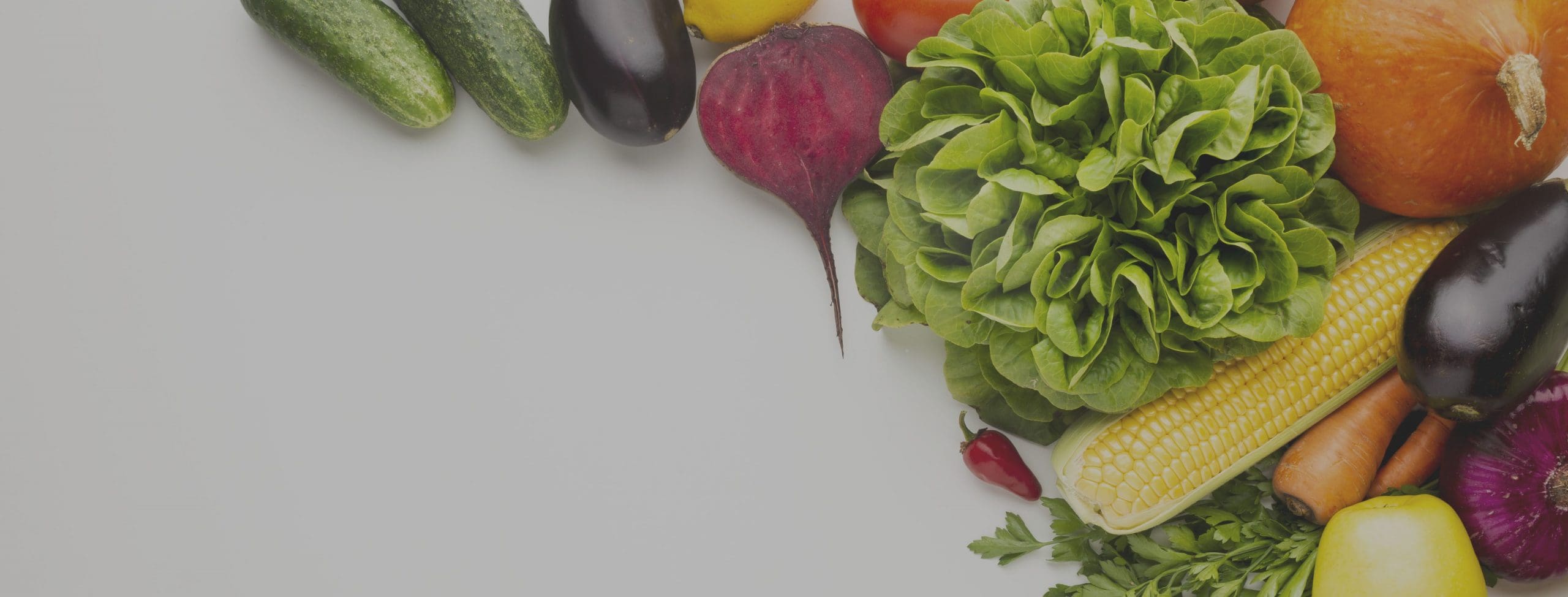
No Comments